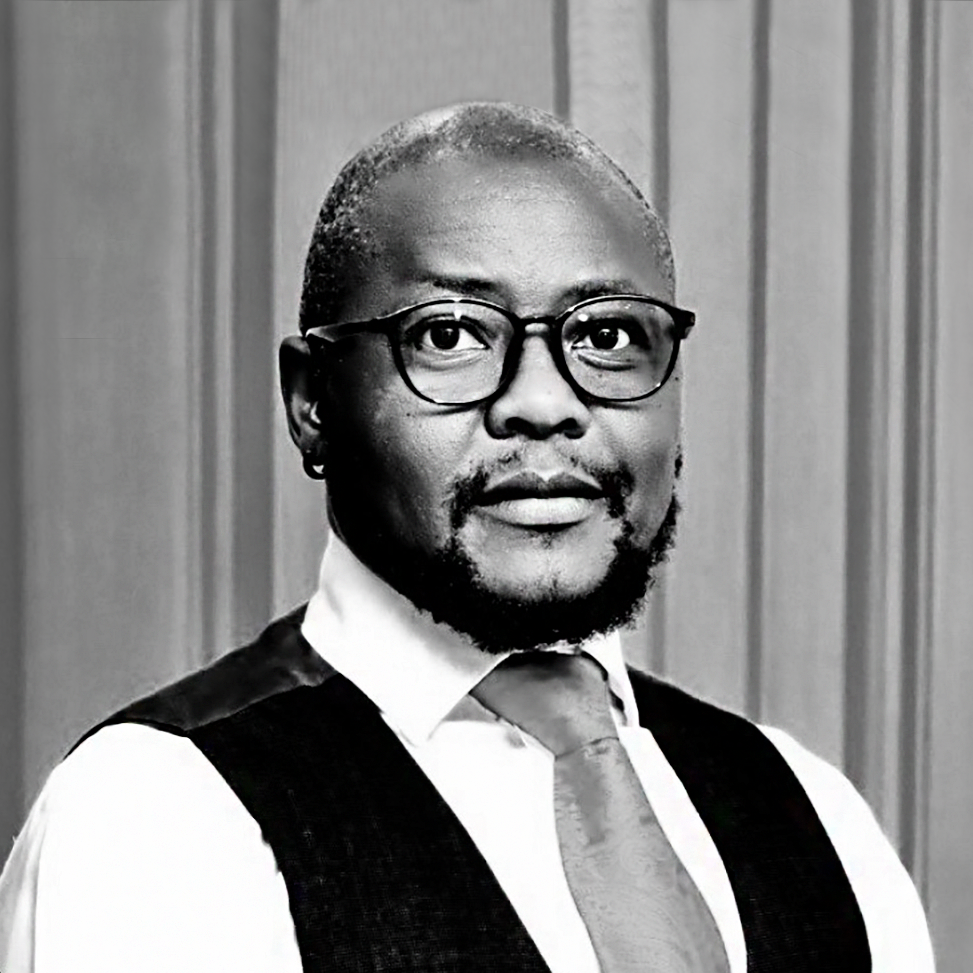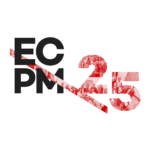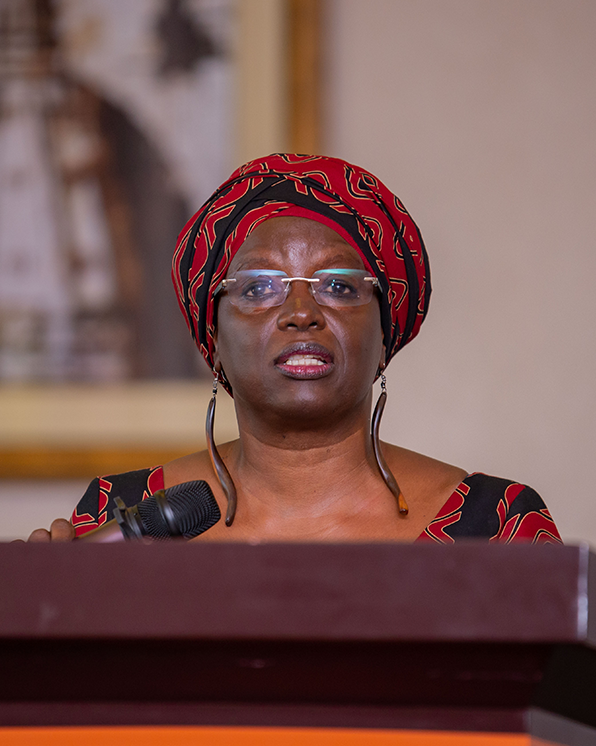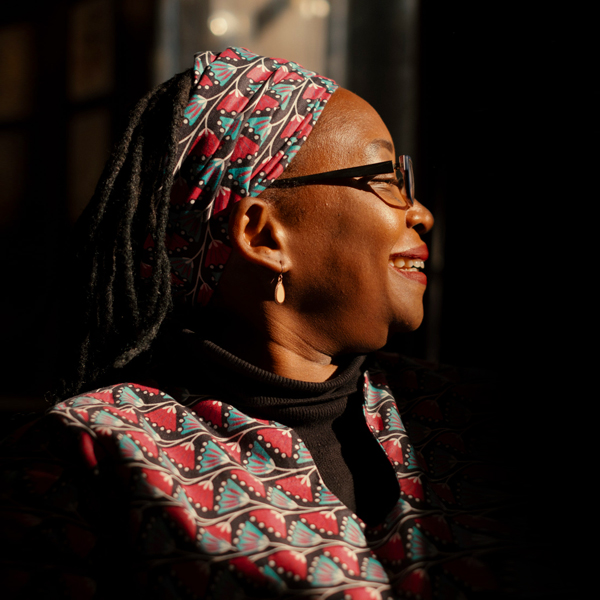
Good morning Pepe, to start with, could you introduce yourself briefly?
My name is Pepe Julian Onziema, and I live in Kampala, Uganda. I work with Sexual Minorities Uganda (SMUG). I am a transgender man and an activist for over two decades, and proudly living in my own country, as horrible as it is.
SMUG actions and being a LGBTQIA+ community member in Uganda
As you know, the law in Uganda mandates the death penalty for the so-called “aggravated homosexuality”. Since the passing of the law, have there been any cases registered under this law? What it is like, today, to be a member of the LGBTQIA+ community in Uganda?
Since our parliament passed the Anti-homosexuality Act in May 2023, also signed by the President, we released a report. It has about 1,053 cases that we have documented from September 2023 to May 2024. Under the law itself, which has the extreme death penalty as a punishment for “aggravated homosexuality”, we have 13 different cases, from all over the country. Our Directorate of Public Prosecution issued a circular, saying that anyone who is charged under the law, has to come to its office before any form of conviction.
We currently have 13 people who are in remand and the sentences haven’t been issued, but they are charged with homosexuality under the current law.
Since our parliament passed the Anti-homosexuality Act in May 2023, also signed by the President, we released a report. It has about 1,053 cases that we have documented from September 2023 to May 2024.
Then, how is the life for a LGBTQIA+ person in Uganda right now? To be precise, the cases that we can trace are 1,053. In those, what is leading is the cases of evictions. This means people who are thrown out of rented housing and people who are thrown out of homes because their families are banishing them for being LGBTQIA+.
Then, usually when a LGBTQIA+ person is arrested – be it a gay man, a transgender woman, a transgender man, or a queer man – , for the policeman to prove that you have committed homosexuality, they carry out first an examination. People are stripped, and their parts are checked by force by the police, to prove that they had what they call “gay sex”. That kind of discrimination is on the rise.
The other ones are arbitrary arrest and blackmail, which are usually intertwined. For instance, when a landlord kicks you out of their house, they call the police. So if you want to recover your rent from your landlord, the police will say: “For us to protect you, to not torture you, to not forcefully examine you, or just for us not to take photos or call the media, give us, let’s say, €500.” Thus, extortion and blackmail happens by the police, but also sometimes by landlords, employers or even partners. Violence and blackmail also occur between intimate partners.
So it is a range of violations, some are in the law, and some are not. But it is an evident fact that some people use the law to blackmail and extort money out of LGBTQIA+ community members.
We know that you have been taken to prison multiple times: what is the impact of being gay and/or transgender when imprisoned in Uganda?
It is horrible. I was arrested and taken to detention six times. The last time that I was arrested was in 2016. At that time, when you went into custody, the policemen told you to remove everything: it meant money, a watch or a ring for instance. Then, you had to take off your shirt, your belt, your shoes, your socks, everything. Also, the place was really dirty. So, when the policeman pushed me into the detention hall, there were other prisoners, and he said: “You deal with this one”. Usually, police also used other prisoners to extort money or else. You know, some serial offenders kept coming to the police station, and they got out when they paid to the police. Hence, they connived and worked together.
I still had my pants and boxers on. But when they pushed me in, one of these serial offenders who was already in started beating me up. He just beat me and then told me: “Go and bathe”. It was a punishment for new people when you got in. So there were soap and water but then they told you: “Why are you using the water and the soap? Did you pay for it?” but at the same time they were telling you that you had to be clean to be there, so it was really difficult. Me, as I identify as a transgender man, I was in the male section, which meant that there was no privacy to take that shower. Two new prisoners were also there and said: “Oh, don’t worry, we are going to shield you”. They helped me with a small piece of clothing they had while saying: “Make it quick”. This is how I managed to take the shower. Then, because I don’t see very well without my glasses, the policeman allowed me to go in with my glasses when I came out of the shower. But then, when I was there, this tall, really huge guy who was the “head of the prisoners”, told me: “Why are you wearing glasses? Do you think you’re special?” and started beating me up until I lost hearing in my left ear. I had to have surgery for that.
We were two transgender men, and then there was a transgender woman. The three of us were really treated so badly, but most especially myself, because I was trying to speak back to say: “Why are you doing this to me?” I had to go for a full medical check-up because they called another prisoner to beat me up. Their explanation for their behaviour was: “These are homosexuals. So we need to treat you the way you need to be treated”.
Before that arrest, myself and another colleague, we had posted a tweet saying Uganda police had arrested us. By the time people in the US and worldwide were waking up because they saw the tweets. They started calling their embassies in Uganda asking: “What is happening to these activists? Whatever police station they are at, can you follow up?” That is what saved us because, at the time when the police officer came to get us out, the other inmates were pulling down my trousers to rape me. The padlock on the door opened, and that’s how it stopped. I still have trauma of that time, and as much as I continue to do my work, I am overcome by fear from time to time.
We also wanted to talk about the perspective of action of your organization to operate in Uganda now that the Uganda’s National Bureau for Non-Governmental Organization banned your organization. What is it like to work in that context right now?
The NGO Bureau, as we call it here, shut our organization down illegally because we were not registered with them. They had no jurisdiction to shut us down. We attempted to register and were denied registration, but out of impunity, they decided to shut down my organization.
Then, how are we working after that? We know and take seriously our right to associate. Our constitution guarantees our right to association even if we are not legally registered. We decided that, if SMUG could not be registered, we had a community of millions of LGBTQIA+ people, and we had to continue serving them. Hence, we decided to create smaller groups of LGBTQIA+ communities across the country, whereby we are documenting violations, and building capacities in advocacy, in organizing and in financial literacy. Also, some organizations registered so we are supporting them in the understanding and implementation of legal parameters to comply.
We decided that, if SMUG could not be registered, we had a community of millions of LGBTQIA+ people, and we had to continue serving them.
My executive director, myself, and our organization are very prominent. We have never hidden ourselves and have been very open, even the government itself consults us. The shutdown did not work out for the government and our community. We needed to find a middle ground. By speaking to our government, we created a sort of agreement that implies that we could continue to work, but without going to our office and having public meetings (it did not include closed-door meetings). Thus, because we are activists, we adopted a “catch me if you can” attitude. When people talk about fugitives, they talk about them in a negative way, but in a country like ours, we adopted a fugitive philosophy to survive. We created so many different safety measures to make sure that our community is meeting and functioning at the same time.
We are in constant dialogue with the government and in fact, about two hours ago today, we were meeting with our members of parliament doing an awareness and sensitisation meeting for them, around the violations that are happening in the community and on the impact of the law that they passed. Most of them were ignorant or confessed that they were bullied and intimidated into supporting the law.
The influence of colonialism: its impact and lines of thought
Your last interview in the US with John Oliver goes back to 2014, and it was the opportunity to speak about the influence of both British and American ideology and colonialism on Uganda’s policies. Since then, according to you, do you think this influence still occurs?
I think that since 2014, the situation has gotten worse. I am out, I am proud, and I live in my own country. I am very clear that I am not going to leave because of the imported homophobia and transphobia into my country. Yes, right now we are living in an environment where there is still colonialism, but it is changing its face. We can see that a new wave of Americans which is coming into the country, is reintroducing and reinforcing this colonialism through anti-homosexuality laws. We have often said that homophobia is imported into our country.
For instance, I belong to a very traditional clan with traditional beliefs, but homosexuality is not banned where I come from. The truth is, transgender people are celebrated as a mythical element within my clan, which helps to guide our traditional values. So when I see neo-colonialists saying that homosexuality is African (first of all, the people who are calling homosexuality African are not Africans), I would like to remind that because of Uganda’s broken system, it is very easy for our leadership to be infiltrated with this ideology.
As I said, we were speaking with our members of parliament today, and most of them were confirming this idea, saying: “When I was growing up, there were people like this. My parents told me about people like this, and we never discriminated them.” That shows you that there was a root, that the British did not want to antagonize their hold on Ugandese or Africans they wanted to colonize. Instead of us as Africans and Ugandese, really questioning our traditional values, we should question what are we really talking about?
Even when talking about religion in the Western sense, Uganda does not fit that value. We just use religion as a cover because the current wave of colonialism is saying: “If you are religious, then you can align yourself with us.” However, in practice, we are not doing that. Even if the law is there, you will find some people in their constituencies and communities safeguarding and trying to protect homosexuals because they know that their tradition protects them. Nevertheless, out there, there are our leaders, who have either been paid money or have connections to states that want them to speak like that.
We have often said that homophobia is imported into our country.
You led the literature club at your school back then. Do you consider literature as a powerful tool for sexual and gender minority advocacy in terms of education and communication? If so, do you think about any Ugandese author who speaks about this subject?
Absolutely. I started the literature club in my school when I was 15 years old, and I feel that it launched my activism. I wrote a small note to one of the national newspapers, and when they published it, I was like: “Oh, okay. You mean people can actually listen to us?”
Literature is very important. I think one of the reasons that we, Uganda, jumped on to anti-gender, anti-LGBTQIA+ movement work is because we do not have proper literature that explains to our own people that this existed a long time ago. When you look at what the anti-LGBTQIA+ people are using, they are using the Bible. The Bible is a form of literature because it is written stuff. Of course, they are choosing what they want to use, but just imagine a world where we wrote our own history. Imagine if our forefathers, foremothers, sisters and brothers, wrote down everything about our clan and history. I feel that maybe homophobia would not be there because we would have something to reference to. We must recount, go back and rewrite that history. It has to be written and vocalized like the interview we are doing today. It will go a long way.
One of the people who has been trying to follow up on that history is a law professor, Sylvia Tamale from the Makeria University. Then the other person is an anthropologist, Dr. Stella Nyanzi, who is currently living in exile in Germany. She wrote extensively about sexual orientation and gender identity, and the importance of literature for us to counter the Western narrative about homosexuality in Africa. Also, I am trying to work on my autobiography to tell my own story as well and to add to the literature that exists.
International outreach of SMUG and Pride Month
Moving on to the Paris International LGBTQIA+ Prize, of which you were the laureate last year. What does this recognition mean to you? Have initiatives like this one helped amplify your voice, maybe worldwide?
We were privileged to be awarded that price. It came with a €5,000 incentive, which was very important at the time because we had so many cases of evictions, arrests, beatings or corrective rape, and we had no money. Our other partners were sending us funding, but it was very slow, and we had this immediate need for money. When I was in France, I asked my colleagues how many cases we were supporting. It was close to 30 cases with relocation, but also for medical cover and mental health support through psychologists who were able to pay for that.
Then, the political incentive of France was also important. Even though we are Anglophone because of British colonisation, and French speakers are very few, we do have a French embassy in Kampala. It improved our significance and our importance for France affirming that even if the French government does not have a major presence in Kampala or in an Anglophone country, LGBTQIA+ rights are still human rights. That was important to communicate that idea, by recognizing SMUG as a recipient of the award. Also, I sent back a gratitude email to the Paris mayor’s office, seeking that this price has to go a long way, because this is Pride Month and most of the embassies are hosting us at their residencies in recognition. Yes, the funding has worked, but now the political cover has to follow. We requested the French Embassy in Kampala to host at least 10 to 15 community members to make the community feel reassured that France is behind and besides us in our quest for human rights.
Yes, the funding has worked, but now the political cover has to follow.
As you know, June is Pride Month worldwide, but it should remind us that we must work for LGBTQIA+ rights every day. What does the Uganda community needs right now to feel some support from the international community, civil society and the general public?
For us, usually we celebrate in August, but we also take part in June. Our message is really simple: do not let Uganda get off the radar, it still needs your solidarity and love. We need you to continue supporting us in amplifying our voices across all sorts of media.
Because what our country, our courts of law, want you to do is to remain silent. Take it from me, as a person who has suffered violations in my own country for being who I am, that the courts of law are just trying to shut the world down and that violations are still happening. We decided to launch the violations report during Pride Month because we wanted people across the world to continue having Uganda on their minds.
If you have money, please put it where it is needed, we still have so many people who still need support. We created SMUG International so we could receive through it. Also, we would like to spread a message to embassies, for them to facilitate visas for people who need to leave the country. It can be permanently or for a few months. Some people just need to go out and breathe, to then come back with better strategies on how to be safe.
We need you to continue supporting us in amplifying our voices across all sorts of media.


